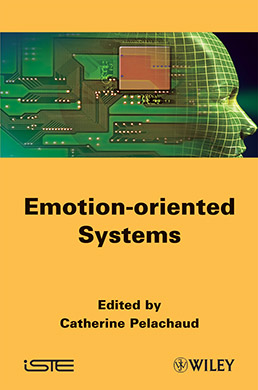
The domain of Affective Computing, a term coined by Rosalind Picard in 1997, gathers together several scientific areas such as computer science, cognitive science, psychology, design and art. Human-machine interaction systems are no longer solely fast and efficient. They aim to offer to users affective experiences: the user’s affective state is detected and considered within the interaction; the system displays the affective state; it can reason about their involvement in achieving a task or resolving a problem. In this book, we have chosen to cover various domains of research in emotion-oriented systems. Our aim is also to highlight the importance of basing the computational model on theoretical foundations and on natural data.
This book brings together chapters dealing with theoretical models, corpora and annotation, as well as computational models of analysis and synthesis. It also provides chapters on design, interactive narration as well as the main applications. The authors have chosen to cover various domains of research (psychology, computer science, art, music) to give an overview of the field.
Part 1. Foundations
1. Contemporary Theories and Concepts in the Psychology of Emotions, Géraldine Coppin and David Sander.
2. Emotion and the Brain, Andy Christen and Didier Grandjean.
Part 2. Non-Verbal Behavior
3. Emotional Corpora: from Acquisition to Modeling, Laurence Devillers and Jean-Claude Martin.
4. Visual Emotion Recognition: Status and Key Issues, Alice Caplier.
5. Recognition of Acoustic Emotion, Chloë Clavel and Gaël Richard.
6. Modeling Facial Expressions of Emotions, Sylwia Julia Hyniewska, Radosław Niewiadomski and Catherine Pelachaud.
7. Emotion Perception and Recognition, Ioana Vasilescu.
Part 3. Functions
8. The Role of Emotions in Human−machine Interaction, Valérie Maffiolo and Magalie Ochs.
9. Music and Emotions, Donald Glowinski and Antonio Camurri.
10. Literary Feelings in Interactive Fiction, Marc Cavazza and David Pizzi.
11. The Design of Emotions: How the Digital is Making Us More Emotional, Annie Gentès.
Catherine Pelachaud is Director of Research at CNRS in the laboratory LTCI, TELECOM ParisTech. Her research interest includes embodied conversational agent, nonverbal communicative and emotional communication, multimodal expressive behaviors and human-machine interaction. She has been and is still involved in several European projects related to multimodal communication, to believable embodied conversational agents, emotion and social behaviors. She was the secretary of the Humaine association from 2007 to 2009. Since 2009 she has been part of its executive committee. She has also been on the organizing and program committees of the ACII conferences.